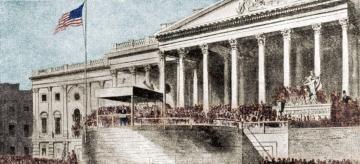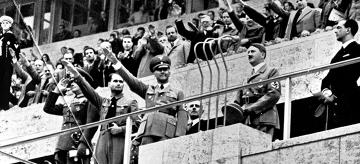
Simulation
NATO Enlargement in 1994 (NSC)
Set in January 1994. Following the collapse of the Soviet Union, many former Soviet states express interest in joining NATO.









A learning journey is a student facing, curated collection of resources that explore a topic from a specific perspective.

Explore past election-year foreign policy debates to see how they relate to the 2024 election.

In this series of historical mini simulations, students step into the shoes of policymakers to advise the U.S. president on how to respond to major foreign policy moments in U.S. history.

Learn about the history of fascist movements and explore democratic backsliding to determine just how history informs the present.